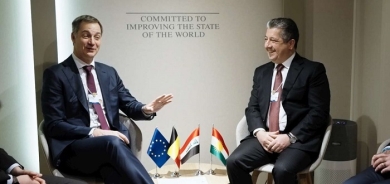Erbil is Erbil, Baghdad is Baghdad
October 22, 2013
From Media

Although the horse-trading has already started among the Kurdistan Region’s various political parties, the politics will officially begin with the end of the legal process over the results of last month’s parliamentary elections. The process will start with the naming of the candidate for prime minister.
Formation of the next government will be the first test for Kurdish politics in a new era where Jalal Talabani, leader of the Patriotic Union of Kurdistan (PUK) and also Iraq’s president, is absent.
The next prime minister will have to face several challenges. They include: Managing a fragmented PUK, which is still licking its wounds from last month’s election rout; dealing with a confident Change Movement (Gorran), which is fresh from its poll victory; and handling an Islamist bloc that may end up in the government coalition or remain in opposition.
According to senior politicians, the Kurdistan Region has 52 senior posts that will be subject to negotiations between the various parties who want to enter government. But the new results of the elections and the imbalance created should dictate a new logic to Kurdish politics.
In the past, Kurdish politics were built on the strategic agreement between the two parties in the ruling coalition, the PUK and the Kurdistan Democratic Party (KDP). The two main parties had customarily split posts in Erbil and Baghdad between them.
This time round, the 50-50 arrangement must end, because each party now has a new weight. Hence, negotiations and discussions among the various parties should reflect this reality.
When it comes to power-sharing, the parties should avoid talking about dividing the positions among them. In fact, talking about posts and people should come last. The negotiations should be centered on a vision for the future and on policy and procedure for governance. Once this is done, the parties can decide if they are in or out.
Both scenarios have their positive and negative aspects. A government of national unity runs the risk of repeating the Baghdad experience. If this solution were to be imposed on the opposition, there is the risk of another stormy parliament with bottles flying around. Although many are calling for a government of national unity, it may not be an easy task to have it either way.
Although the end result of the political give-and-take remains unknown, there are some ground rules that will dictate the process: First, no one has the geographic or demographic majority; second, the 50-50 arrangement has ended; and third, Baghdad is Baghdad and Erbil is Erbil.
RUDAW











